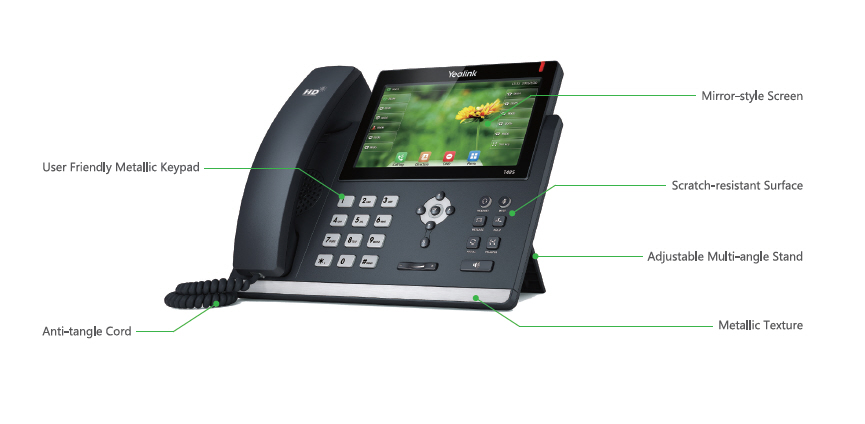Introduction
The world of communication has undergone a monumental shift over the years. As startups emerge in every corner of the globe, they are on the lookout for cost-effective, reliable, and flexible communication systems that can help them establish their presence without breaking the bank. Enter Voice over Internet Protocol (VoIP) phone systems. These systems have revolutionized how businesses communicate, offering advanced features at a fraction of traditional phone system costs. In this comprehensive guide, we’ll delve into Breaking Down the Costs of VoIP Phone Systems for Startups to ensure you make informed decisions that align with your business goals.
What is a VoIP Phone System?
Voice over Internet Protocol (VoIP) phone systems allow users to make voice calls using an internet connection rather than traditional telephone lines. This technology converts analog voice signals into digital packets that can be sent over the internet.
How Do VoIP Phone Systems Work?
VoIP technology works by digitizing voice signals and transmitting them in data packets over IP networks. The process involves several steps:
Voice Conversion: Your voice is converted from analog to digital. Packetization: The digital signal is broken down into packets. Transmission: These packets are sent over the internet. Reception and Reconstruction: At the other end, the packets are reassembled into a voice signal.Benefits of Using VoIP Phone Systems for Startups
- Cost Efficiency: One of the primary advantages is reduced costs associated with long-distance calls. Scalability: Easily add or remove lines as your business grows. Advanced Features: Access features like voicemail-to-email, call forwarding, and video conferencing without extra charges.
Breaking Down the Costs of VoIP Phone Systems for Startups
When considering a transition to a VoIP phone system, it’s essential to break down all potential costs involved—from setup fees to ongoing monthly charges—so you can better prepare your budget.
Initial Setup Costs
Initial costs can vary significantly based on several factors:
- Hardware Expenses: Depending on whether you opt for IP phones or utilize existing devices, hardware costs can fluctuate dramatically. Installation Fees: Some providers charge installation fees if professional assistance is required. Software Setup Costs: If your system requires specific software installations or configurations, factor those expenses in as well.
Monthly Subscription Fees
Most VoIP service providers operate on a subscription model:
- Basic Plans vs. Premium Plans: Basic plans often start as low as $10 per user per month but may lack advanced features like CRM integration or video conferencing capabilities. Per User Charges: Expect to pay a fee per user; this might range anywhere from $15 to $50 depending on feature sets.
Additional Costs to Consider
It’s crucial not only to focus on initial setup and monthly fees but also consider these additional expenses:
- Internet Bandwidth Requirements A strong internet connection is paramount for quality VoIP calls.
| Bandwidth Requirement | Number of Simultaneous Calls | |-----------------------------|------------------------------| | 100 Kbps | 1 | | 300 Kbps | 3 | | 1 Mbps | 10 |
- Support Services: Some providers offer premium support packages with additional monthly fees.
Choosing the Right VoIP Provider for Your Startup
With numerous providers available in today’s market, choosing the right one can feel overwhelming. Here are some vital considerations:
Features That Matter Most
Every startup has unique needs:
- Do you require video calling capabilities? How important is mobile compatibility?
Investigate each provider's feature set thoroughly before committing.
Evaluating Customer Support Options
Quality customer service can make or break your experience:
- Is support available 24/7? Are there multiple channels (chat, email, phone) available?
Assessing Scalability Potential
As a startup grows, so will its communication needs:
- Can you easily add new users? What are the costs associated with scaling up?
VoIP System Maintenance and Upgrades
Maintaining your VoIP system can incur additional costs—here’s what you should consider:
Regular Maintenance Requirements
Keeping a VoIP system running smoothly may involve regular updates and troubleshooting:
Software Updates: Ensuring your firmware remains current prevents security vulnerabilities. Hardware Checks: Regular assessments ensure hardware operates effectively.Budgeting for Upgrades
Over time, technological advancements http://dantedphx072.huicopper.com/customizing-your-experience-how-to-choose-a-flexible-voip-phone-system will necessitate upgrades:
- Plan ahead for potential hardware replacements or software enhancements.
Common Misconceptions About VoIP Costs
Understanding common misconceptions about VoIP costs helps paint an accurate picture of financial commitments.
“VoIP is Always Cheaper”
While many find savings through VoIP systems, this isn’t universally true:
Hidden Fees: Some providers include hidden fees that may negate perceived savings. Quality Concerns: Poor service quality due to inadequate infrastructure could lead to losses in productivity.“You Don’t Need High-Speed Internet”
A robust internet connection is essential for optimal performance; underestimating bandwidth needs could lead to poor call quality—potentially impacting customer relationships.
FAQs
Q1: How much do VoIP systems typically cost per month?

Q2: Are there any hidden fees associated with VoIP services?
A2: Yes, some providers may charge installation fees, support fees, or additional charges for specific features.

Q3: Can I use my existing phones with a new VoIP system?
A3: Many businesses can adapt existing phones; however, ensure compatibility with your chosen provider's requirements.
Q4: Will switching to a VoIP system improve call quality?
A4: Yes! With adequate bandwidth and technology provisions in place, many users report significant improvements in call clarity compared to traditional systems.
Q5: Is it easy to scale my VoIP service as my business grows?
A5: Absolutely! Most providers offer flexible plans allowing easy addition or removal of users as needed.
Q6: What happens if my internet goes down?
A6: If internet services fail, so will your ability to make calls unless you've implemented backup solutions such as cellular failover options.
Conclusion
In conclusion, breaking down the costs of VoIP phone systems for startups does not merely entail crunching numbers; it involves understanding how these modern communication tools align with your business objectives while maximizing efficiency and minimizing unnecessary expenditures. By weighing all factors—initial setup costs against ongoing monthly subscriptions—and considering scalability alongside necessary features—you position yourself best for success in today’s competitive landscape. Investing wisely in a quality VoIP system today could yield substantial dividends tomorrow—so take time to explore options carefully!